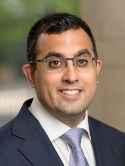Surgical outcomes and genomic insights of nonclear cell renal cell carcinoma with synchronous and metachronous nodal disease Journal Article
| Authors: | Eismann, L.; Zucker, M.; Dawidek, M. T.; Reese, S. W.; Calderon, L. P.; Aulitzky, A.; Stief, C. G.; Coleman, J. A.; Kotecha, R. R.; Carlo, M.; Chen, Y.; Reznik, E.; Russo, P.; Hakimi, A. A. |
| Article Title: | Surgical outcomes and genomic insights of nonclear cell renal cell carcinoma with synchronous and metachronous nodal disease |
| Abstract: | Introduction:Oncological outcomes in patients with nonclear cell renal cell carcinoma (non-ccRCC) treated with surgery for locoregional nodal disease (ND) remain incompletely characterized. The objective was to investigate the characteristics and outcomes of non-ccRCC patients treated with lymph node dissection (LND) and salvage-LND (S-LND).Methods:A total of 1627 patients underwent nephrectomy for nonmetastatic non-ccRCC at Memorial Sloan Kettering Cancer Center between 2007 and 2023. Histology was grouped as papillary, chromophobe, unclassified, and rare subtypes. Retrospective evaluation identified 2.5% (n = 40) of patients with nodal disease at time of nephrectomy (synchronous-ND) and 1.1% (n = 18) with metachronous nodal disease limited to the retroperitoneum (metachronous-ND). Patients' demographics and tumor characteristics were recorded and evaluated by univariate and multivariate cox regression models. Recurrence-free survival (RFS) and overall survival (OS) were estimated by the Kaplan-Meier method. Patients who underwent tumor DNA sequencing during their clinical course were considered for genomic analysis.Results:OS trended toward longer in metachronous-ND (51 vs 105 months; P =.2), though 23% of patients with synchronous-ND were recurrence-free at 45 months median follow-up. In multivariate analysis, rare histologies were associated with decreased OS (P =.030) and metachronous-ND with improved OS (P =.036). RFS and OS after S-LND was 15 and 96 months, respectively. Late onset of metachronous-ND/recurrence was associated with improved OS (P =.008). Genetic alterations in SETD2, TP53, B2M, and FGFR3 were exclusively seen in synchronous-ND, and tumor mutation burden (TMB) was also higher in patients with synchronous-ND (P =.016).Conclusions:Patients with metachronous-ND tend to have prolonged OS compared to synchronous-ND, but a substantial portion of patients with synchronous-ND still enter a durable disease-free state following LND. S-LND can likewise provide long-term survival, particularly in patients with longer time to metachronous nodal recurrence. Synchronous-ND was associated with SETD2, TP53, and NF2 alteration as well as higher TMB. © 2024 Lippincott Williams and Wilkins. All rights reserved. |
| Keywords: | adult; cancer survival; human tissue; middle aged; primary tumor; major clinical study; overall survival; sequence analysis; mutation; systemic therapy; disease free survival; follow up; lymph node metastasis; lymph node dissection; lymph node excision; gene; tumor volume; cohort analysis; retrospective study; fibroblast growth factor receptor 3; protein p53; histology; renal cell carcinoma; nephrectomy; body mass; proportional hazards model; radical nephrectomy; genomics; imaging; multivariate analysis; cancer epidemiology; kaplan meier method; carcinomatous peritonitis; univariate analysis; genetic screening; neuroectoderm tumor; retroperitoneum; renal medullary carcinoma; recurrence free survival; clear cell renal cell carcinoma; collecting duct carcinoma; surgical outcome; clinical outcome; demographics; tp53 gene; long term survival; setd2 gene; dna sequencing; human; male; female; article; salvage lymph node dissection; tumor mutational burden; b2m gene; american society of anaesthesiologists score; hereditary leiomyomatosis and renal cell cancer; second primary neoplasm; translocation renal cell carcinoma; metachronous nodal disease; mit family translocation carcinoma; targeted panel sequencing |
| Journal Title: | Urology Practice |
| Volume: | 11 |
| Issue: | 5 |
| ISSN: | 2352-0779 |
| Publisher: | Lippincott Williams & Wilkins |
| Date Published: | 2024-09-01 |
| Start Page: | 860 |
| End Page: | 870 |
| Language: | English |
| DOI: | 10.1097/upj.0000000000000623 |
| PROVIDER: | scopus |
| PMCID: | PMC11335441 |
| PUBMED: | 38913557 |
| DOI/URL: | |
| Notes: | The MSK Cancer Center Support Grant (P30 CA008748) is acknowledge in the PDF -- Corresponding authors is MSK author: A. Ari Hakimi -- Source: Scopus |
Altmetric
Citation Impact
BMJ Impact Analytics
MSK Authors
Related MSK Work














